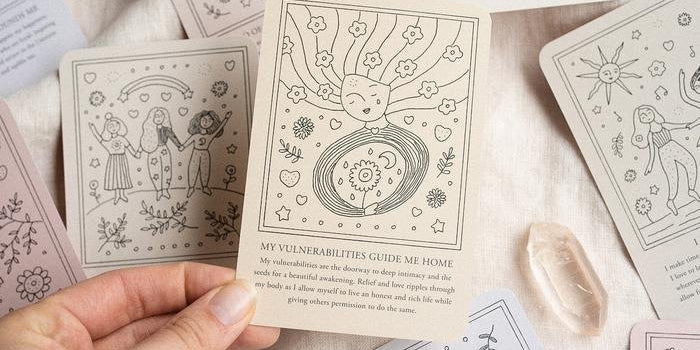"You have a superpower and it's called Empathy."
Do you frequently find yourself in situations where your work mates, acquaintances, or anyone really, just start to divulge all their life problems to you, and then you're left feeling emotionally exhausted? Yeah, take a seat.
Don't get us wrong, we believe that being an empath is an admirable quality to have. For example, an empath has the ability to understand and relate to emotions and experiences that others are going through. This means they are amazing listeners and are very supportive friends or colleagues. Empaths are emotionally intelligent and have strong intuitive abilities, as well as having a kind of healing presence for those around them.
However, we understand all too well the emotional and mental exhaustion that comes along with it. Empaths can often find themselves in situations where they:
-
Absorb other's emotions
-
Constantly take on the Caretaker Role
-
Have boundary issues
-
Experience emotional fatigue
-
Avoid conflict
-
Have a difficulty of saying No
And more.

Hello! Tayla here :)
Being an empath myself, I understand completely the struggles that come along with it. The situations that often stand out to me are back when I was working in an office, I would often find myself being caught up in my work colleagues life/work problems, even if all I did was ask if I could borrow someone's pen. Most of the time, I found it would really affect the rest of my day because I could feel their emotions and as I would sympathise with them, it would only lead me to carrying the weight of their struggles on top of my own. I think over time, it started to become a theme for a lot of my work colleagues to do. Now, I'm not blaming them at all, they were just wanting someone to listen and validate their feelings, but it would start to become a bit too much for me to handle daily.
So I started to look into ways that I could protect myself from other's emotions, which you will find listed below!
1. Protective Visualisations
Imagine a protective shield or bubble around you that blocks out negative energy and emotions when someone is confiding in you. This mental barrier can help you feel secure and less affected.
2. Set Boundaries
Learn to set healthy boundaries to protect your emotional well-being. It's important to know when to say no and when to take a step back from situations or people that drain your energy.
3. Limit Exposure to Negative Media
Avoid consuming too much negative news or violent media, as it can overwhelm you emotionally. Choose uplifting and positive content instead.
4. Develop Emotional Awareness
Become aware of your own emotions and distinguish them from the emotions of others. Regularly check in with yourself to understand what you are feeling and why.
5. Practice Mindfulness
Mindfulness practices can help you stay present and reduce emotional overwhelm. Techniques like mindfulness meditation or journaling can increase your awareness and acceptance of your emotions.
6. Practice Compassion for Yourself
Be kind and patient with yourself. Understand that being an empath is a unique trait that requires self-compassion and understanding.
We hope these tips will be helpful!





